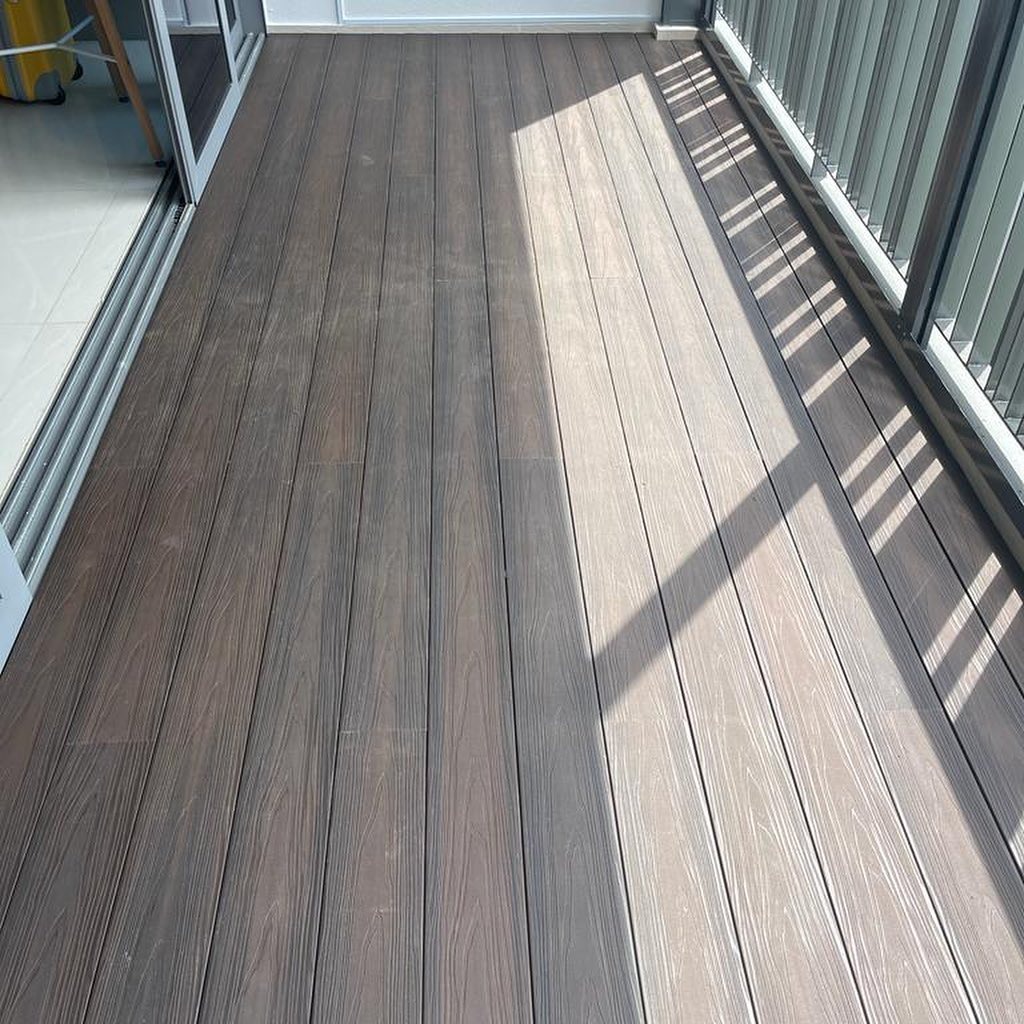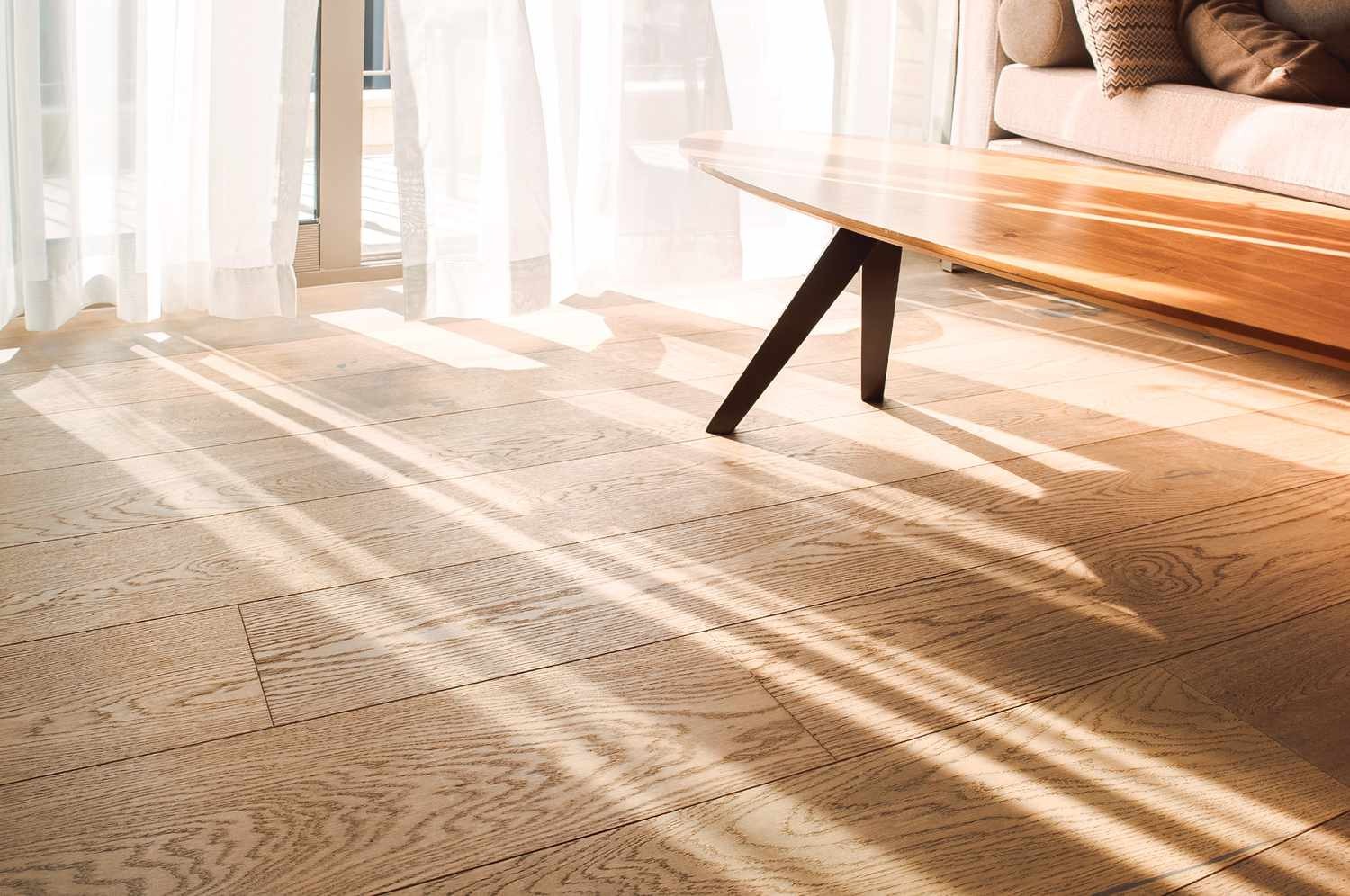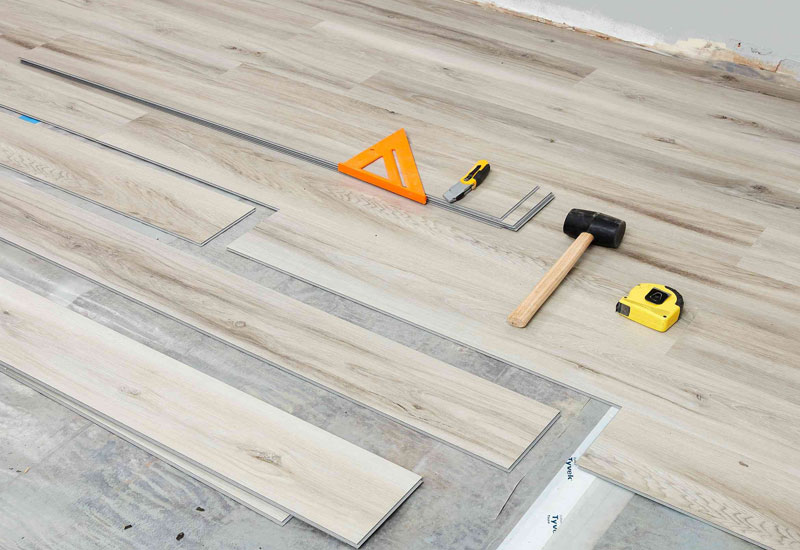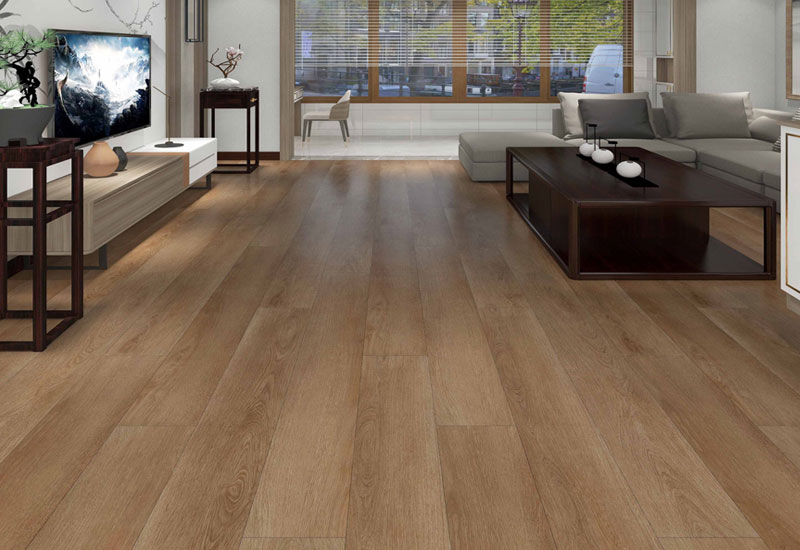
Types of Vinyl Plank Flooring
There are three categories of vinyl plank flooring (or VPF): luxury VPF, rigid core VPF and waterproof VPF. Here is a look at the different types three categories of vinyl plank flooring (or VPF):
Luxury Vinyl Plank Flooring
This type of flooring lives up to its name with an authentic wood look and superior construction. It is made of four layers that include a waterproof core plus a damage-resistant layer on top. The multiple layers create a surface that is not only beautiful but also comfortable to walk on.
Rigid Core Vinyl Plank Flooring
This type is built to last thanks to a strong composite corner. Because of its durability, this option is a good choice for high-traffic areas like hallways, entryways and open-concept homes.
Waterproof Vinyl Plank Flooring
This flooring often has features similar to both its luxury and rigid core counterparts, but it is also completely waterproof. It is the ideal option for kitchens, bathrooms, utility rooms and other areas in a home where spills and splashes are common.
What is the best vinyl flooring
Armstrong Pryzm Rigid Core: Best for High-Traffic Areas
High-traffic areas are not only used often, but they are seen often. That’s why you’ll want a surface with a rigid core that can hold up to foot traffic and also maintain a beautiful appearance year after year. This is an especially good option for homes that feature an open-concept floor plan.
Pros
- Waterproof
- Can be installed over radiant heating
- Can resist ordinary household stains
Cons
- Planks are expensive
- Planks are thin, so they don’t offer a true wood feel underfoot
- Likely too advanced for DIYers to install
Mannington ADURA ®: Best for Homes with Pets
Pets are beloved members of the household, but they can wreak havoc on our flooring. This floor can withstand plenty of scampering around.
Pros
- Can withstand scratches from claws and paws
- Casy to clean
- Won’t retain odors
Cons
- Not an easy installation for DIYers
- Design tends to look hazy in direct sunlight
- Doesn’t offer a true hardwood floor look
Shaw Resilient: Best for Kitchens, Bathrooms and Utility Rooms
Kitchens, bathrooms and utility spaces (like laundry rooms) are high-traffic areas that are also more prone to spills and messes. Flooring in these spots must be waterproof and easy to clean, making vinyl plank flooring an easy decision.
Pros
- Can stand up to spills and splashes
- Can be cleaned easily
- Easy to install
Cons
- Expensive
- Could fade overtime
- Warranty is limited.
LifeProof: Best for Basements
This waterproof vinyl plank flooring brand by Home Depot is a popular choice for budget-minded homeowners. It comes in a variety of different design and color options so you can choose the look you want most for your home.
Pros
- Waterproof (an important feature to have in basements that are prone to flooding)
- Easy to install as a floating floor over a basement’s concrete slab
- Inexpensive
Cons
- Interlocking tabs have been known to break during installation
- Only available at Home Depot
- Limited warranty covers the current home owner, but not future homeowners
SMARTCORE Ultra: Best for DIY Installation
If you thought you needed a professional to install your new luxury vinyl plank flooring, think again. Some brands offer click-together styles that make it much easier for you to DIY and be thrilled with the results.
Pros
- Authentic wood look
- Highly durable
- Waterproof
Cons
- Only available at Lowe’s
- Can be difficult to install
- Could fade over time








